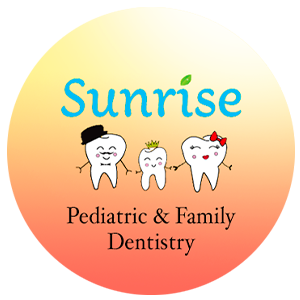Oral Appliances Houston
One of our goals is to provide the most conservative treatment possible in every situation. Oral appliances offer simple, non-invasive care for a variety of conditions. Regardless of the application, every appliance we prescribe is custom-crafted for you with excellent fit and function.
Appliances designed on models of your teeth can be used to fit on either upper or lower teeth, or on both at the same time. Whether we're treating nighttime sleep grinding, diagnosed obstructive sleep apnea, bite problems or jaw joint disorders, appliance therapy may aid our treatment. Our doctors employ a variety of innovative designs depending on treatment goals and your preferences.
Sleep Apnea
We're concerned about the overall health of our patients, including their sleep health. Many people suffer needlessly from dangerous sleep disruptive disorders that keep them from getting enough oxygen at night. The risk of a heart attack is 23 times more likely than average with a sleep disorder, and 92% of stroke victims live unknowingly with this condition before an attack. Our training allows us to offer you education and treatment surrounding sleep health in the simplest and most cost-effective way possible.
Estimates suggest that more than twelve million Americans compromise their health due to obstructive sleep apnea (OSA). Most cases remain undiagnosed, contributing to diabetes, high blood pressure, hypertension, congestive heart failure, coronary artery disease, and traffic accidents related to drowsy driving. Dentistry serves a vital role in treating this silent epidemic. The American Academy of Sleep Medicine recommends oral appliances as a primary therapy for the treatment of mild to moderate obstructive sleep apnea and for patients with severe sleep apnea who can't tolerate CPAP treatment.
What is OSA?
OSA is a breathing disorder characterized by brief interruptions of breathing during sleep due to a blockage in the airway. Obstructions occur when throat muscles, tongue, tonsils, or the soft palate falls back into the throat. The obstruction results in a severe drop in blood oxygen levels throughout the night.
OSA is typically diagnosed using a polysomnogram or a sleep study. During a sleep study, a sleep physician monitors brain activity and body system functioning while a patient rests overnight at a sleep lab. The specialist evaluates the study data collected to diagnose sleep disorders and recommend treatment. If indicated by the sleep doctor, a dentist trained in sleep medicine works with him/her to treat obstructive sleep apnea with oral appliance therapy. In some cases, a home sleep study may also be possible instead of reporting to a sleep lab.
How Is OSA Treated?
Treatment of snoring and obstructive sleep apnea may involve surgery, CPAP or BiPAP machines, or oral appliance therapy. Oral appliances provide the least invasive option and often a good choice for treatment of mild to moderate OSA. A carefully calibrated appliance can comfortably help hold the jaw in a precise position throughout the night, allowing critical oxygen flow.
All treatment recommendations should be made in consultation with your sleep physician. Once a treatment path that you can use consistently is chosen, we may be able to provide critical support for your efforts. If appliance therapy is selected, it's essential the right method and positioning are designed to precisely maintain your airway.
Teeth Grinding
Under normal circumstances, your teeth should only contact for about 5 minutes each day. Normal chewing results in brief intervals of contact between enamel surfaces, the hardest substance in the human body. Slight amounts of wear over years of function frequently occur, and bite edges can chip a little. But these durable surfaces should wear at nearly undetectable rates.
Sometimes teeth develop a flattened, worn appearance, even in young patients. And x-rays may demonstrate unusually thin layers of enamel as if sandpaper has been drawn across the chewing surfaces of the teeth. A few minutes of chewing daily simply shouldn't erode the enamel so much.
You Don't Even Know
Some patients develop a subconscious habit of grinding their teeth, either during the day or night. In many cases, the abrasive action occurs only during sleep, and for only a few seconds at a time. If you wake up with a sore jaw or a morning headache, chances run high you're grinding your teeth during the night. In some patients, enlarged jaw muscles develop on the sides of the face from the extra activity. These muscles can be the strongest in the body, ounce for ounce. That means they can generate a lot of unnecessary damage.
The unusual activity not only wears down teeth and strains the overworked muscles. The compressive forces can also damage the intricate jaw joints on one or both sides. Damage to the joints may lead to arthritic changes, chronic pain, and popping or clicking. Once these changes settle in, reversing their condition may become impossible.
Avoiding Irreversible Damage
If you're waking up with a sore jaw or headaches, or you've noticed wear or flattening of your teeth, a consult with our doctors should be on your list. The sooner the problem receives attention, the less damage there will be. Often a carefully calibrated night guard with a distinct bite relationship built in will eliminate the symptoms while protecting your precious enamel.
Daytime habits of clenching or grinding deserve attention, and strategies to reduce the problem may be developed. Our doctors will also will also analyze the current relationship between your teeth to make sure they're moving against each other optimally when you chew. Regardless of the cause, eliminating the strain on the jaw and your teeth as quickly as possible can save you many problems as time goes on.
